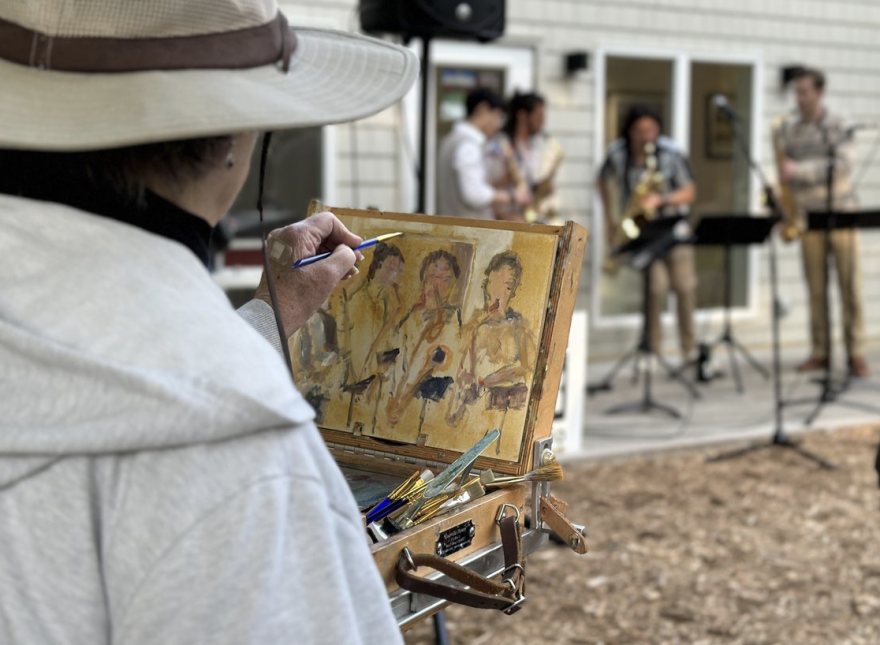Arts and culture centers in northern Michigan worry a delay in grant programs could snowball into funding cuts.
Last month, the government body that oversees state-funded grant programs for arts and culture centers in Michigan announced it would delay its announcement of grants for the upcoming fiscal year.
In an email newsletter last month, Michigan Arts and Culture Council Executive Director Alison Watson said future programs are on hold until a budget is enacted for fiscal year 2026, a process that is not typically concluded until the end of the summer.
MACC provides funding to eligible 501(c)(3) nonprofits — places like museums, historical societies and arts hubs. Organizations can apply for funding that helps them maintain operations, purchase equipment or jumpstart new exhibits or art classes.
In her email, Watson attributed the delay to “changes in federal administration and shifts in state legislation.” MACC has not responded with clarification on the state legislation in time for publication.
“We understand that this situation creates a lot of uncertainty for those in the field,” Watson wrote. “MACC encourages all potential applicants to plan ahead.”
Northern Michigan is home to dozens of MACC funding recipients which range from large arts collectives to small-town galleries. While Watson gave no indication the grants would be canceled entirely, some officials worry about a growing trend of slashing government support for the arts.
“Typically, we would have been gearing up to apply for grants in June or July,” said Tamara Hoffbauer, Executive Director of the Oliver Arts Center in Frankfort. “At this point, I'm just planning on them not happening at all.”
The Oliver Arts Center is a mid-sized arts nonprofit that organizes an annual youth summer camp, concert series and regularly updated galleries and community art classes.
It received just under $25,000 in MACC funding for fiscal year 2025 which funds maintenance and staffing at the historic building.
“It’s a fair chunk of our budget, it’s not insignificant,” Hoffbauer said.
Without MACC funding, Hoffbauer said the center will have to focus its fundraising efforts on individual donors and private philanthropies.
But that sector will undoubtedly become more competitive as arts and culture organizations of all sizes fight for funding.
“Things keep changing almost daily,” said Craig Hadley, executive director and chief curator of the Dennos Museum Center. “If some of these other sources of funding, like state and federal dollars, dry up then I think a lot of us will be looking to additional sources of funding.”
Hadley said the Dennos Museum Center gets between $20,000 and $30,000 a year from MACC. In recent years, this has funded new exhibits and programs, including a concert series.
The museum charges a $10 entry fee for adults and $5 for kids. But Hadley said revenue made from entry fees “doesn't come close to representing the true cost of everything that goes into putting exhibits together.”
“The nonprofit ecosystem, particularly post-COVID, is already so fragile,” he said. “We've seen a number of nonprofits close in our region in just the past couple years.”
In 2023, Arts for All of Northern Michigan closed its doors due to lack of funding and staffing challenges left over by the pandemic.
At the time, Mary Gillett, then the leader of the Northwest Michigan Arts and Culture Network, said the closure is indicative of funding issues among many arts nonprofits.
“The cavalry didn't necessarily come out for arts and culture when the pandemic hit,” Gillett said in 2023. “It's been a rough road. These are also employers, these are also businesses, these are also organizations that are serving very real needs.”
At small arts organizations like Charlevoix Circle of Arts, MACC funding can make up as much as 15% of the organization’s annual operating budget.
Charlevoix Circle of Arts Executive Director Sarah Matye said she’s optimistic her organization will be able to persist without government support though “things will look different.”
“As we would tighten resources in our budget, our ability to do some of those special events, community collaboration, a lot of the free programming things - we just wouldn't be able to support without grant revenue,” Matye said. “I've seen data that just says that there's no way that can ever keep up or replenish what government funding does… I think it's just going to affect the whole nonprofit sector.”


